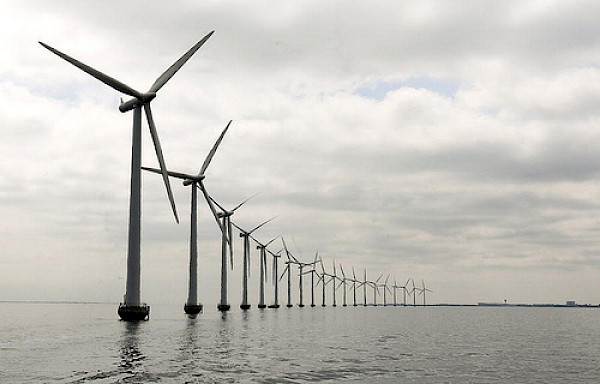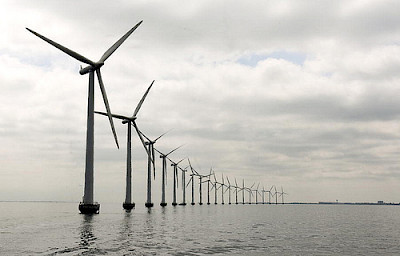
7 Nov 2014
This blog from our advisor Clifford Singer was first published on Open Democracy.
The left's love-in with devolution deepened with last month's Compass-organised letter to the Guardian, signed by everyone from Progress on Labour's right to Class on Labour's left, alongside Greens and others. They may have been pushing at an open door in their call for Labour to devolve power. Both Ed Miliband and policy head Jon Cruddas have argued similarly in recent months, with Cruddas stating: "The real divide within Labour is no longer between left and right, but between those that centralise power and those that devolve it."
Labour must "win power so we can give it away" is the new mantra. The sentiment is right, but it only covers half the picture. If we are serious about devolving power, then we need to talk about economic as well as political power - and much of that is not the government's to give away; it belongs to centralised and increasingly monopolistic corporations.
That is why it was disappointing that, in an otherwise forward-looking speech on devolving power, Cruddas fell back on a public service cliche uttered by just about every minister since New Labour: "What matters is not whether the provider is public, private or third sector but that it does what the people who use it want."
But the logic of decentralisation suggests ownership does matter - and no more so than in public services, where the participatory approaches offered alongside devolution, like co-production and relational welfare, make market-based relations centred on private producers and consumers increasingly irrelevant.
Part of the reluctance to discuss alternatives to private ownership is understandable: public ownership has become closely associated with the post-1945 "Morrisonian" model of nationalisation: bureaucratic, centralised and top-down. But it was never the only model, and in recent years there has been a growing interest in public ownership forms that are decentralised, participative and pluralistic.
Two books have made important contributions to this debate. Andrew Cumbers' 2012 Reclaiming Public Ownership, offers a broad definition of public ownership "encapsulating all those attempts, both outside and through the state, to create forms of collective ownership in opposition to, or perhaps more accurately to reclaim economic space from, capitalist social relations" (see Joe Guinan's review essay for a detailed account).
Cumbers praises "hybrid" ownership models, such as in renewable energy in Denmark: "Denmark's wind power revolution is neither a story of market-led growth, nor of top-down, state-driven planned developments, but instead reflects a grassroots, community-based initiative, underpinned by decentralized, cooperative and municipal ownership alongside small-scale private ownership."
But he adds that this has not occurred spontaneously. Bottom-up initiatives still need top-down support, and the state has played a vital enabling role in "establishing targets and the construction of particular institutional arrangements, through rules around ownership and the setting of prices outside pure market forms".
These themes are developed further in the Jimmy Reid Foundation's recent "common weal strategy for community and democratic ownership of Scotland's energy resources", co-authored by Cumbers. The report notes five key principles of a Nordic approach to energy ownership, which could well be applied elsewhere:
1. Resources should be commonly owned to benefit the community as a whole rather than vested interests.
2. Resources should be geared to social need rather than private economic returns.
3. Support for principles of collective learning and knowledge formation.
4. Development of de-centred institutional structures that spread economic decision making power.
5. A mix of forms of collective and public ownership that allow strategic planning at higher levels to fuse with the encouragement of local democracy and community participation.
Such an approach chimes with Paul Salveson's 2012 Chartist pamphlet, 'Socialising Transport', which envisages not-for-profit regional operators coexisting with a publicly-owned Intercity network. The latter would be based on the state-owned Directly Operated Railways, but with "more democratic governance involving not only the Department for Transport but employees, the Scottish and Welsh governments, local authorities and passenger groups".
The other key book is Gar Alperovitz's What Then Must We Do?, published last year. Alperovitz is an economist with decades of experience helping to develop grassroots alternatives in the US through projects like the Democracy Collaborative and Evergreen Cooperatives. He argues: "The old liberal system model let the corporations and elites largely own the system and hoped after the fact to use politics and reform to regulate, incentivise and tax and spend for public purposes. That model, give or take momentary blips, is fading away." (See Anthony Painter's summary for more.)
In its place Alperovitz advocates a "pluralist commonwealth" that "draws upon literally thousands of on-the-ground 'common wealth' developments to move in a different direction. It rests fundamentally on the principle of subsidiarity: development should begin at the community and neighborhood level, moving up to higher state, regional and national levels only when absolutely necessary. Among the primary local institutions considered are: cooperatives, neighborhood corporations, worker-owned companies, social enterprises, land trusts, and municipal utilities - along with, of course, small scale private businesses and innovative high tech firms, and in many areas, traditional non-profit institutions."
He envisages a power shift that could take decades as alternative economic institutions displace established ones. Whether this gradualist approach can scale up to create the systemic change Alperovitz wants remains to be seen. But its appeal is that we start to put ideas into action now rather than waiting for some future utopia. It's vital work: unless we find ways to devolve economic power, political devolution risks leaving us still more powerless in the face of corporations.


Comments
Edd Ringlein 12 years ago
Decentralization of resource needs to be the primary focus moving forward.The commons should be managed democratically by those who make use of it and not controlled for the sake of profit. The same should be argued for net neutrality, the WWW should not be permitted to be controlled for profit for the few.
Reply